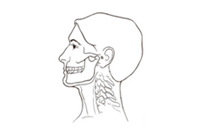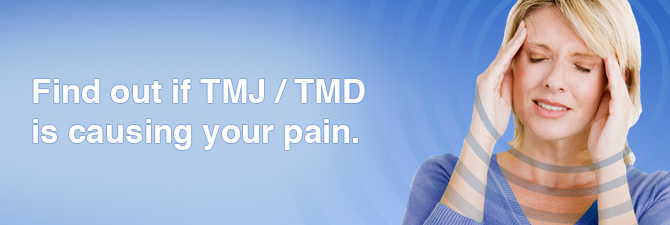San Antonio, Texas
Since the temporomandibular joint combines a swinging action with sliding motions, it is one of the most intricate joints in the human body. Its intricacy is also complicated by its location at a complicated crossroads of the human body, where the functions of eating, breathing, hearing, and transmitting vital messages to and from the body and brain. When the joint becomes displaced, it can affect these other functions in complex and hard-to-predict ways.
Your lower jaw has rounded ends that glide in and out of your joint socket when you eat, talk, or open your mouth wide. The parts of the bones that interact within your joint are covered with cartilage and separated by a small disc that keeps the movement smooth.
A temporomandibular joint disorder (TMJ/TMD) can occur if:
- The disc is damaged or is moved out of alignment
- The cartilage of your joint is damaged by arthritis
- A blow, accident, or other significant impact damages your joint
- The muscles that stabilize the joint become fatigued. This often happens if you grind your jaw or clench your teeth
If you hear clicking
If you have ever experienced clicking or popping in your jaw, do not worry; this is common. As long as it is not accompanied by other symptoms like pain, lockjaw, teeth grinding, headaches, or ringing in your ears, you may not need treatment.
Malocclusion and TMJ
Aside from trauma and arthritis, a bad bite or “malocclusion†is believed to be one of the main causes of TMJ. When your teeth do not fit together so that your muscles are in their optimum rest position when your mouth is closed, it puts stress on the hard and soft tissues of the jaw. So what causes malocclusion?
Teeth overcrowding
Malocclusion is often caused by the disproportion between the size of your jaw and your teeth or a disproportion between the size of your lower and upper and jawbone. These differences can lead to the overcrowding of your teeth and foster an irregular bite.
Also, children who loose teeth may experience a shift in their remaining teeth, which naturally move toward the empty space. Thumb sucking beyond age 4 can also negatively impact a bite, as can improperly fitting dental restorations, retainers, and braces.
Mouth breathing
Breathing through your mouth also plays a role in the development of a bad bite. In children, when mucous builds up from things like food or environmental allergens, it impedes their ability to breath out of their nose. It also leads to an accumulation of bacteria in the throat, therefore training their bodies to breathe from their mouths.
With mouth breathers, the tongue may rest over the spot where the back teeth are supposed to erupt, forcing the jaw back so that the mouth can fit together. This can result in an overbite and a constriction of the jaw’s natural arch.
If You Believe You Have TMJ
For some people, discomfort associated with TMJ / TMD may go away on its own. Sometimes physical therapy is necessary to restore equilibrium following an accident. If treatment is needed, a coronoplasty can be performed to correct your bite by reshaping your teeth enamel. Dental crowns can also be used to restructure your bite, or orthodontics can align your teeth so your jaw closes into its ideal position. In some cases, orthopedic surgery on the joint may also be indicated.
If you are experiencing pain associated with TMJ and you live in the San Antonio area, Dr. Brian Hale is here for you. He and our dedicated staff can answer your questions and help you become pain free. Please schedule a TMJ consultation with our office today.

Describe Your TMJ
Printable Form (PDF)
To help us better understand your specific pain points and determine the ideal treatment, please print this form. Circle all symptoms that apply to you and bring it to your TMJ consultation.



